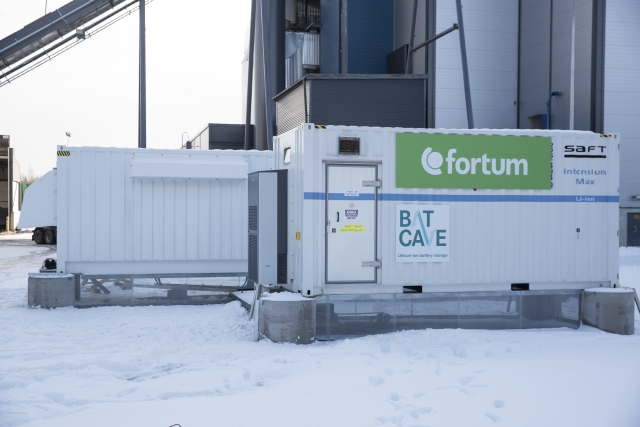Fortum has started operating a 5 MW/6.2 MWh lithium-ion battery storage system at the Forshuvud hydropower plant in Dalarna, Sweden.
It plans to use the storage system to lower the risk of network disturbances, while minimizing what Fortum describes as “wear and tear” on the hydropower facility.
“This is a unique solution. It means that the supply of energy will be more secure and more sustainable,” said Toni Kekkinen, VP Hydro and CEO of Fortum Sverige AB. “Fortum always aims to invest in innovations that reinforce our hydroelectric power plants and that strengthen green energy. We will evaluate this project and our priority is that this technique will be used in other power plants throughout Sweden.”
Fortum describes hydropower as the “backbone of the Nordic renewable energy system,” noting that it accounts for roughly 50% of Sweden’s total generating capacity. However, other non-hydro renewables are now being deployed throughout Sweden, based on the government’s target to derive all power from renewables by 2040. Policymakers in the country are also concerned about improving the transferability of its energy to neighboring countries such as Norway.
“The fact that there has to be sufficient amount of well-functioning and precise regulation capacity in Nordic power system, the new batteries, will reinforce the regulation power in the Nordic power system,” said Tatu Kulla, Fortum's head of business development. “At the same time, we are improving an already green and sustainable energy source.”
The batteries at Forshuvud will compensate for increasingly rapid changes in electricity generation caused by wind power, for example. The system will improve the hydropower plant’s role as a regulator and more effectively take advantage of capacity regulation, which Fortum describes as “one of the main benefits of hydroelectric power.”
Rapid changes at hydropower plants can shorten their expected lifespans, as mechanical parts start to break down. However, Fortum claims that the batteries it has installed at Forshuvud can help to mitigate the damages to the plant’s turbines and generators that result from rapid changes in power.
Last October, a consortium led by Fortum was announced as the winner of a 100 MW solar tender in Montenegro.
This content is protected by copyright and may not be reused. If you want to cooperate with us and would like to reuse some of our content, please contact: editors@pv-magazine.com.



By submitting this form you agree to pv magazine using your data for the purposes of publishing your comment.
Your personal data will only be disclosed or otherwise transmitted to third parties for the purposes of spam filtering or if this is necessary for technical maintenance of the website. Any other transfer to third parties will not take place unless this is justified on the basis of applicable data protection regulations or if pv magazine is legally obliged to do so.
You may revoke this consent at any time with effect for the future, in which case your personal data will be deleted immediately. Otherwise, your data will be deleted if pv magazine has processed your request or the purpose of data storage is fulfilled.
Further information on data privacy can be found in our Data Protection Policy.